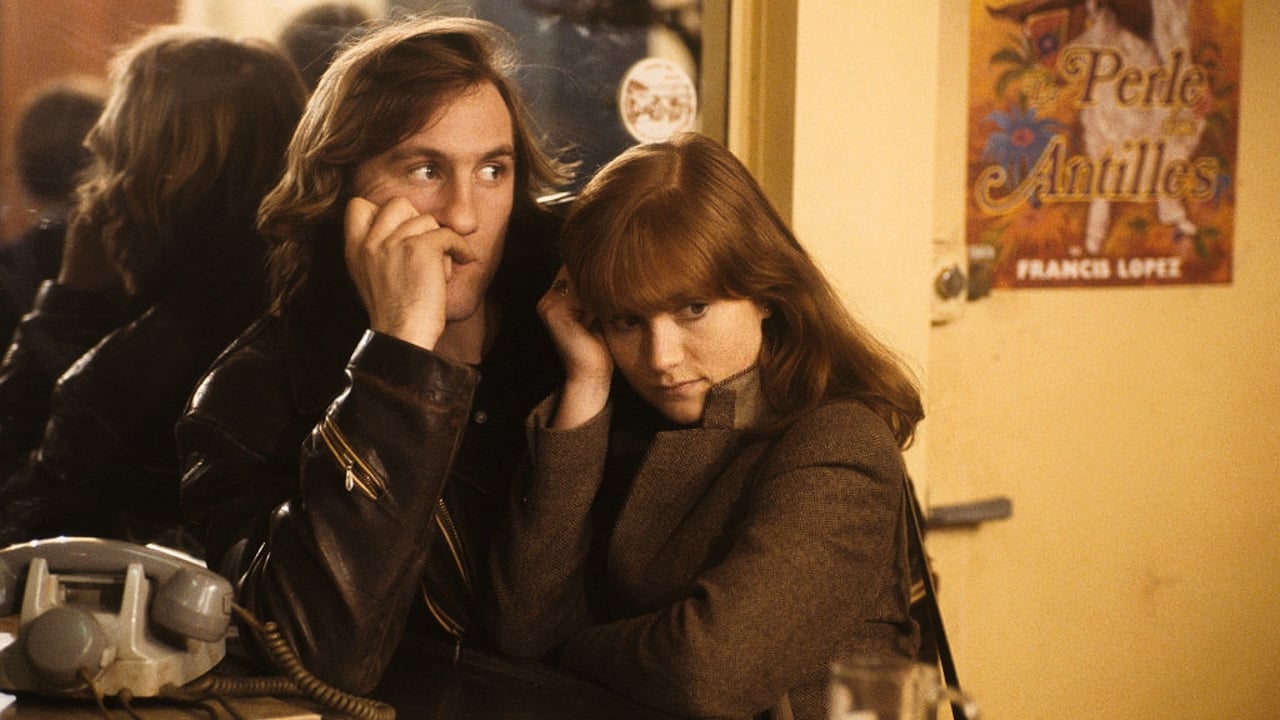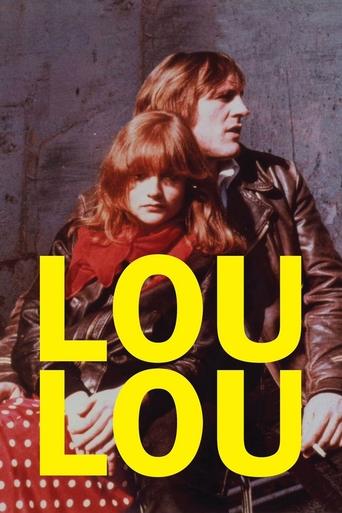

Maurice Pialat's portrait of contemporary France mocks prosperity as a substitute for social and sexual revolution. Nelly abandons her bourgeois friends and a steady relationship for the unemployed layabout Loulou, whose charms include focusing his energy into sex.As noted, this film was directed by Maurice Pialat. For the average person, the name Pialat means nothing. But he may be one of the best French directors of the last 25 years, what might be called the post-New Wave, perhaps. And "Loulou" in retrospect may be his most accessible work because it stars Isabelle Huppert and Gérard Depardieu, two of the biggest French stars of their era.I don't have much to say on the film itself because it was not a story that appealed to me. Technically well-made, and an interesting showcase for Depardieu if you like seeing him in bed. But not my sort of plot.
... View MorePialat's underrated masterpiece, "Loulou" is a incredible impressive film, mostly because it can explore so many themes, and the way Pialat succeeded to tell this story about a confused "love". Before he made another masterpiece, "À nos amours" (1983), he made this, which every thing sounds and feels real, therefore his character never fell superficial. Nelly (Isabelle Huppert) is emotionally trapped between the simple minded Loulou (Gérard Depardieu) and her aggressive and manipulative husband André (Guy Marchand). "Loulou" is about the freedom that Nelly is looking for, and she believes that this freedom is in her new love affair, Loulou, but yet she is still confused to live with a unemployed man or go back to her boring life. The coldness and detachment that Pialat uses never seems or fell exaggerated, but yet it is still possible to relate and care for these characters. In the end, we have a powerful film about the search for freedom and love, who says more with it's characters actions than with their words. A remarkable masterwork.
... View MorePialat films people in extreme emotional situations, usually with several violent scenes. In La Gueule ouverte, he's dealing with the devastating effects on a woman's husband and son as she dies of cancer. In A nos amours, the teenage girl's sexual experimentation leads to violent confrontations with her family. Here we have a rather spoiled young woman who abandons her husband to take up with a sexy ex-con. Her motivation is a little cloudy, since Loulou is incapable of reading or discussing anything more challenging than TV shows; on the other hand, he's got a fabulous body (I wonder why Depardieu never made a sports movie to show off that physique--he would have been great as a rugby player).The casting is impressive. Isabelle Huppert gives a committed performance as Nelly; her middle class reserve plays well against Depardieu's loutish energy. Depardieu plays Loulou with all the dynamism and charm you could want--see the scene in the bar, where he's stabbed in the gut, runs away and seeks treatment, then soon restarts with Nelly. Guy Marchand, with those coal-black eyes and distressed look, plays Nelly's husband beautifully; it's a fine repeat of their pairing in Diane Kurys's Coup de foudre.
... View MoreDirector Maurice Pialat's film is more an exercise in star power than any presentation of narrative, with Isabelle Huppert leaving her husband Guy Marchand for the leather-clad ex-con ruffian Loulou played by Depardieu. Even though the tone takes its cue from the character of Loulou as a womanising drifter, the low key seemingly improvised rambling scenes are preferable to the gab-fests of Eric Rohmer, who is responsible for the negative connotations associated with French films by Americans. This film is actually mistitled since although it is Depardieu that is the catalyst for Huppert to change her life, the story is more hers than his. Or perhaps it is that the representation of her crumbling marriage that is more dramatically interesting than Depardieu's "loafing". If Loulou's character is sketched thinly that may to keep him as an enigma, the mysterious bad-boy that women always seem to prefer. At one point Huppert says of Depardieu, "I prefer a loafer who f**ks, to a rich guy who bugs me". And although we can see how limiting Depardieu's world is to Huppert, we also understand her attraction to him, highlighted by a silent image of the couple stumbling down a street in a drunken embrace. Pialat's best moments involve scenes of violence interrupting - a family get together soured by jealousy, the loud music of a disco drowning out shouting, and a brawl between Depardieu and Marchand in a courtyard with a following drink together as evidence of the French form of civilised behaviour. Huppert also has an early scene with Marchand where the camera follows his pursuit and humiliation of her, and here Huppert's anger invalidates the myth of her as a passive performer. The film also shows us footage of her laughing, which is unusual since her situations are usually so glum, and she is funny when she yells in shocked reaction to being hit, in the famous love scene where the bed collapses, and when she falls in the street by accident. Pialat also gives Marchand a laugh by having him resort to playing the saxophone in depression.
... View More